Our slogan is
“Connecting China and Europe, harmonizing the world”
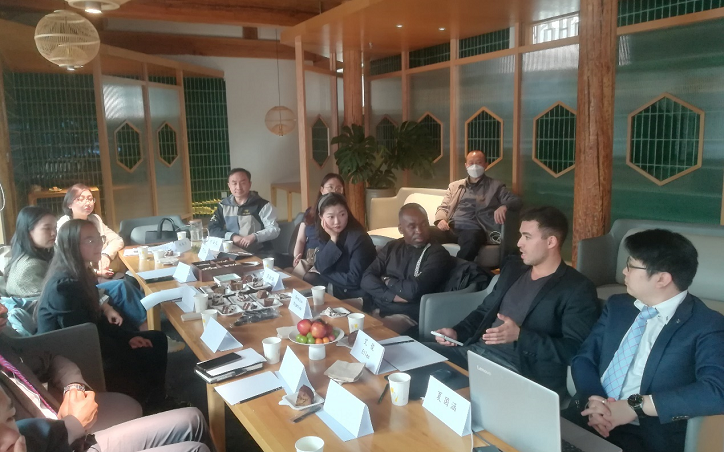
On 2 April, the Zonghengce Strategy Insitute and the Glory Diplomacy Youth Think-tank co-hosted a youth forum on "Sino-European Relations in the New Era", the second in the Zonghengzhi series of events on "Strategic Repositioning of Europe in a Century of Change". This forum was the second in a series of events entitled "Strategic repositioning of Europe in a century of change". The forum took the form of a combination of online and offline discussions with the participation of outstanding young people from China, France and Africa. The forum was hosted by Xia Guo Han, founder of Zonghengzhe think tank.
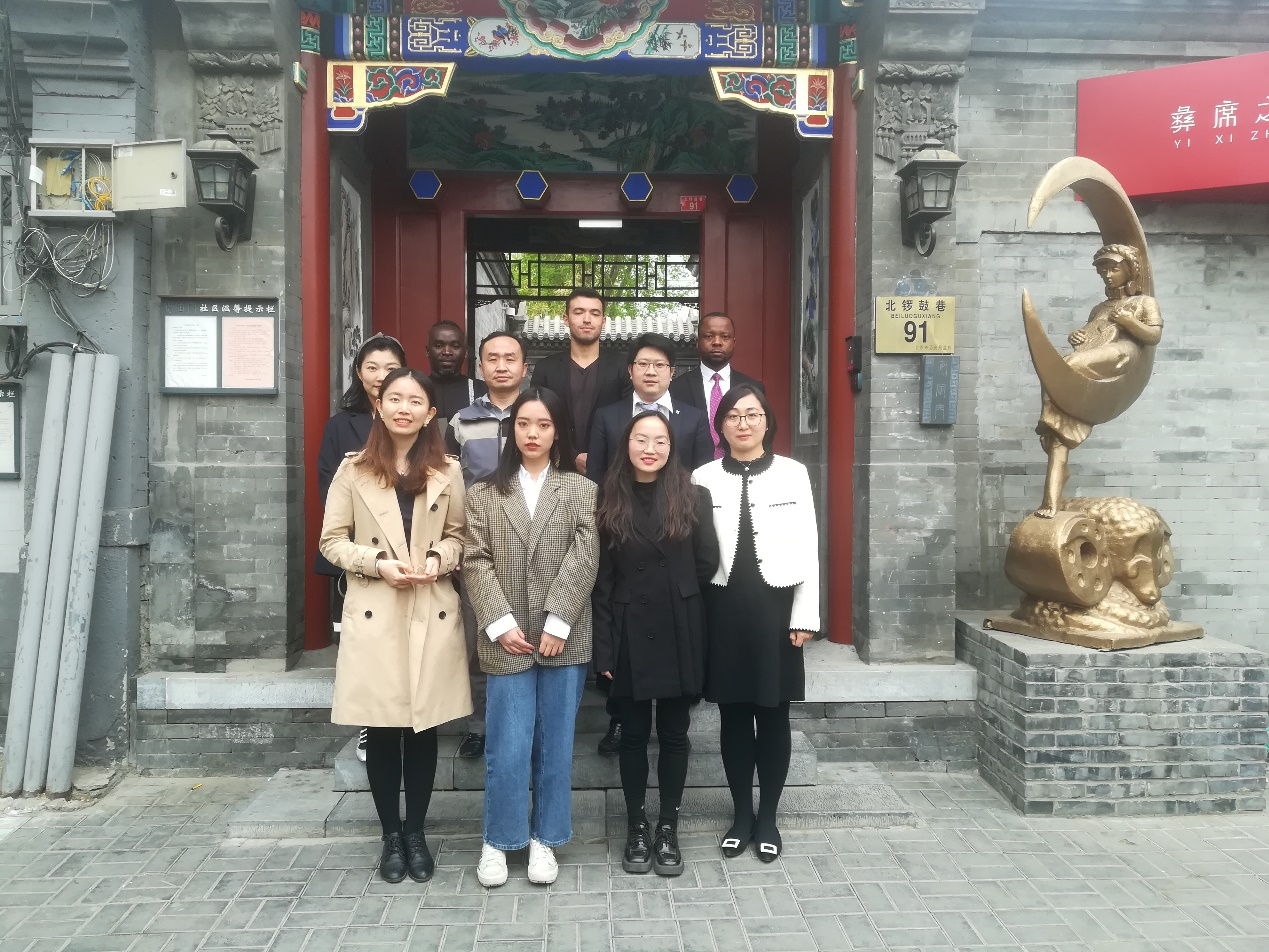
List of attendees of the forum:
-Xia Guohan, Founder of Zonghengce Strategy Insitute
-Wang Gaigai, Founder and Chairman of the Board of Directors of Glory Diplomacy Youth Think-tank
-Fu Yue'e, Secretary General, China-Africa Youth Federation
-Zhao Lisha, Western Returned Scholars Association
-Chen Shangrong, Tsinghua University, Western Returned Scholars Association
-Zhang Xianchi, National Academy of Painting, Western Returned Scholars Association
-Guo Hailong, Chinese Society for Socialism in Science, Contributing Researcher, Glory Diplomacy Youth Think-tank
-Sun Heqi, PhD student, Warsaw University-Sorbonne University, Assistant Researcher, Serbian Institute of Economics, Visiting Researcher, University of Belgrade, Contributing Researcher, Glory Diplomacy Youth Think-tank
-Feng Wenyuan , MA, King's College London
-Du Weihua, Associate Professor, Guangdong University of Foreign Studies
-Luo Xiao, Secretariat of the China-Africa Youth Federation
-Mutombo Kianga Scheel, University of International Business and Economics (UIBE), PhD in International Relations, Li Xiang
-Donatien Niyonzima (Rwanda), PhD, Communication University of China, Senior Editor, Foreign Languages Bureau of China
-Elies (France), International Student, Beijing Foreign Studies University
Xia Guohan, founder of Zonghengce Strategy Insitute, firstly explained the international context of the forum: the concentration of heavyweight European leaders such as Spanish Prime Minister Sanchez, French President Macron, European Commission President von der Leyen and Italian Prime Minister Meloni visiting China may herald the prospect of a rebound in Sino-European relations from the gloom of the three-year epidemic, therefore, the organisers hope to use this forum to understand the views of the young generation in China and Europe on The organisers hope that this forum will allow them to understand the attitudes and views of the younger generation on the current international situation, Sino-European relations and the expected evolution of the world landscape.
The co-organiser of the forum, Wang Gaigai, founder and chairman of theGlory Diplomacy Youth Think-tank, delivered a congratulatory speech, stating that the concept of "youth wisdom is national wisdom" was once proposed by the Grand Diplomacy Think Tank, and that today it is hoped to extend this concept to "youth wisdom is world wisdom". "He hopes that this forum will bring together the best of both worlds. He hopes that this forum will be a reflection on the issues of "how to practice youth international development", "how to conduct youth diplomacy", "how to conduct youth think tank diplomacy" and "how to reach the 'wisdom' of youth wisdom".
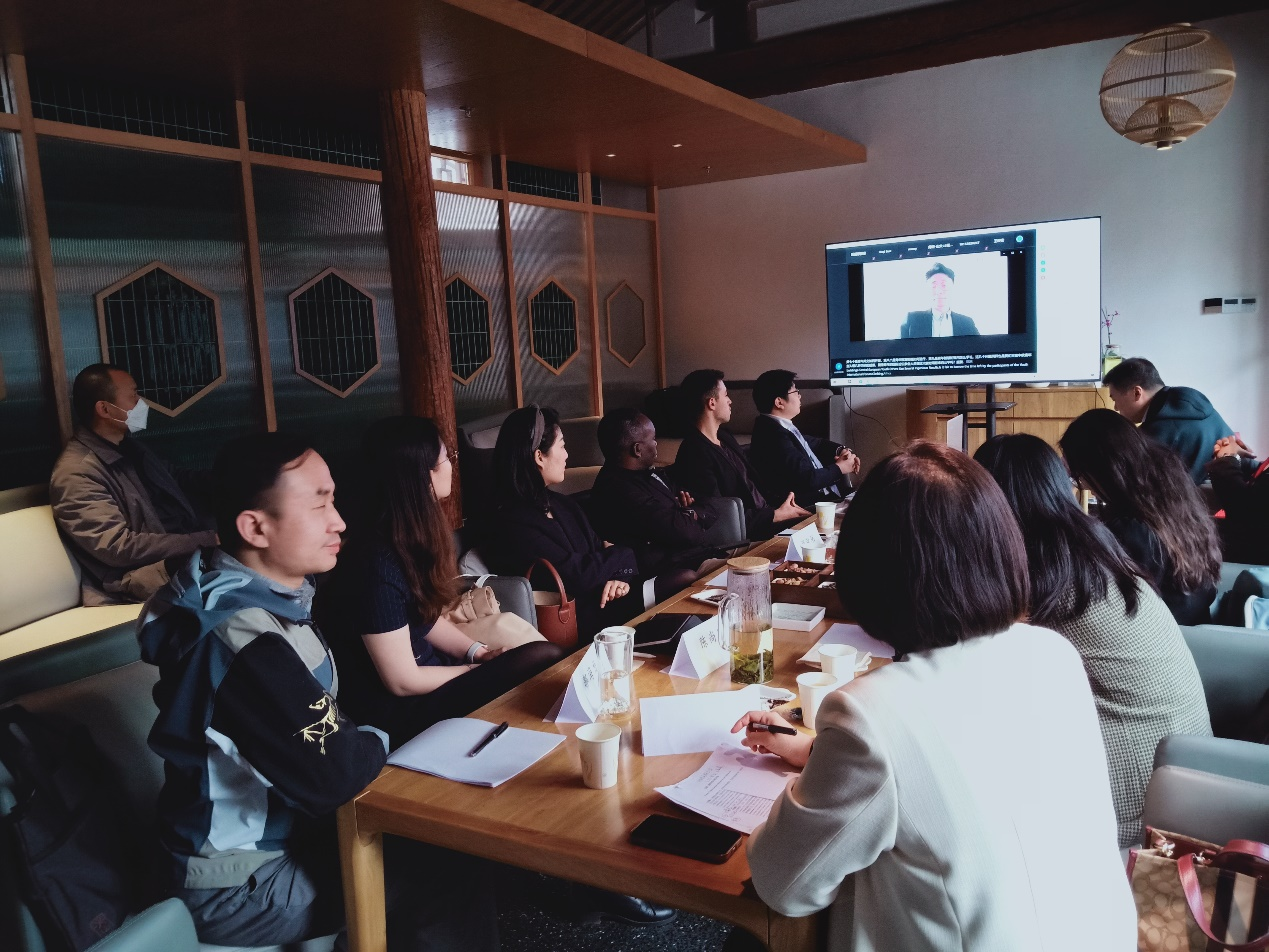
According to Zhao Lisha, a researcher and member of the Western Returned Scholars Association, the recent series of European leaders' moves to visit China will warm up Sino-European relations in the short term, but in the long term probably the bilateral relationship will still be fragile. There are three reasons for the warming of Sino-European relations: firstly, there is no fundamental conflict of geo-security interests between China and Europe, and China's diplomatic attitude of "no targeting, no dependence and no restriction to third parties" is more pragmatic; secondly, after the epidemic, the resumption of people-to-people exchanges at all levels was a slow process, but now, driven by the exchange of high-level visits between the two sides, economic and trade, humanities and other areas have been restarted; thirdly, the exchange between China and Europe has been restarted. Thirdly, China's attitude towards Europe is more friendly and it has been seeking practical cooperation with Europe in the economic, trade and climate fields. In addition, the Russia-Ukraine conflict has caused great damage to Europe in terms of economy, energy and food, so the Europeans want to end the war as soon as possible and hope to push China to intervene to mediate a truce. This year marks the 20th anniversary of the establishment of a comprehensive strategic partnership between China and Europe, with the two sides having established high-level diplomatic pillars in five areas: strategic, economic and trade, green, digital and humanities; and next year is a big year for Sino-French relations, with both the 60th anniversary of diplomatic relations between China and France and the Paris Olympics. So a short-term warming of Sino-European relations is inevitable, but in the long term it will remain a political-cold and economic-hot, because it is difficult for China to influence the mainstream discourse of political correctness in Europe.
Chen Shangrong, a member of the Western Returned Scholars Association and a post-doc in digital economy at Tsinghua University's University of Social Sciences, spoke on the topic of "How to shift from superficial exchanges between France and China to deeper exchanges such as history and politics". For example, in the field of digital economy, Europe has excellent theoretical constructs, while China has a wealth of big data and practical experience, and there is a strong complementarity between China and Europe in this field.
Sun Heqi, a PhD student at Warsaw University-Sorbonne University, assistant researcher at the Institute of Economics of Serbia, visiting researcher at the University of Belgrade, and contributing researcher at the Glory Diplomacy Youth Think-tank, spoke on the topic of "Competition and cooperation between China and the EU in the Western Balkans". According to him, the Western Balkans is a geopolitically important region, the heart and backyard of the European Union, influenced by the United States, the European Union and Russia, and a key development area for China under the Belt and Road Initiative. At present, the influence of Russia and the US in the Western Balkans is gradually decreasing, while the influence of China and the EU is gradually increasing. As a result, China and the EU will have both competition and cooperation in this region. For reasons of political history, ideology and negative propaganda, as well as the fact that the Russian-Ukrainian conflict has deepened the fear of Russia in the Western Balkans and led the countries to support the West (even Kosovo and Bosnia and Herzegovina were once rumoured to be joining NATO), there is a risk that the region's strategic trust in China will be shaken. Against this backdrop, China should be fully prepared to deal with the multifaceted challenges, enhance regional trust, improve sustainable investment mechanisms and try to contribute to the mediation of the Russian-Ukrainian and Kosovo crises, in order to avoid a repeat of the "China-CEE 17+1" that turned into a "14+1". The lessons of the "China-CEE 17+1" turned into "14+1".
Mr Feng Wenyuan, MA at King's College London and invited speaker at the Grand Diplomatic Initiative, discussed China's relationship with the world from the perspective of Western "Sinology" methodology. He argues that despite four decades of integration into the global socio-economic system, discussions of China are still based on the central assumption that China represents an external force that can interfere with the 'normal' functioning of things. This assumption of China as an orientalised, externalised and independent 'other' has ultimately distorted the image of China and the world. There are now three dominant perspectives on China in Western society - essentialism (or exceptionalism), engagementism (or integrationism), and whataboutism (or so whatism). In 2022, the field of China studies saw the emergence of a 'global China' perspective, which broke through the limitations of the traditional perspective of 'othering' China and presented us with a new theoretical model for thinking about China and the world in a global way. He argues that if China wants to compete for international discourse in the world, it is very important to build a theoretical system of its own, one that is based on traditional culture but also on a global perspective to explain China's relationship with the world.
Mutombo Kianga Scheel, PhD in International Relations at the University of International Business and Economics, discusses the theme of African and European relations. Li began by tracing the origins of European social, political and economic influence on Africa from a historical perspective - the slave trade and European seafaring expeditions from the 18th and 19th centuries onwards; the 19th century to the end of World War I, when European imperialism divided up Africa in a frenzy; and the decolonisation of African countries until the 1960s, which still continues today. It was not until the 1960s that African countries began to decolonise, but they are still struggling with the legacy of European colonialism. Next, Li wanted to explain the multiple links between Europe and Africa in the areas of military, political, economic and trade, and scientific and technological innovation. Finally, he pointed out that in Africa, European-African relations are currently characterised by anti-French sentiments (Democratic Republic of Congo, Mali, Burkina Faso, Central African Republic) and that this movement is mainly driven by young people, who make up 77% of the total African population. Macron was famously disliked by African youth delegates at the France-Africa Youth Summit in 2021 (below).
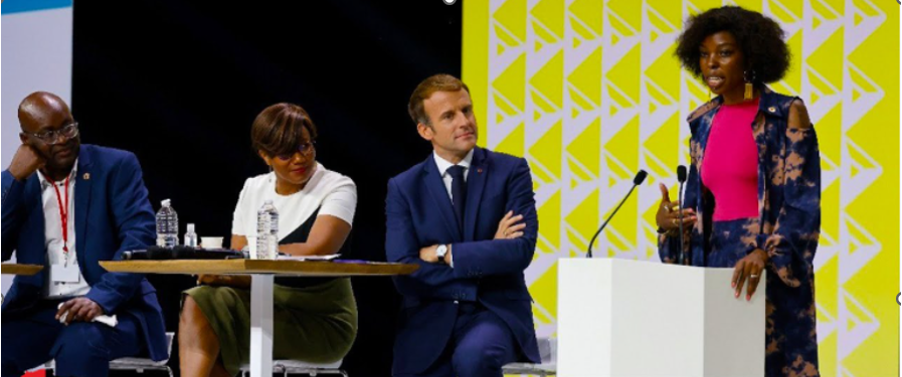
Guo Hailong, a contributing researcher at the Chinese Academy of Scientific Socialism and the Great Diplomatic Think Tank, discusses the current state of autonomy of the EU in the process of achieving strategic autonomy. He argues that since the new century, strategic autonomy has gradually become a long-standing demand of the EU, i.e. the pursuit of an independent status at the world level through diplomatic and defence integration. However, in reality, the EU's strategic autonomy has been characterised by a "state of autonomy", as evidenced by the relatively smooth integration of the EU in domestic areas such as the economy, currency, labour standards, people-to-people exchanges, justice and environmental protection, while it has struggled with foreign affairs and defence integration, similar to the British autonomy of the past, hence the term "state of autonomy". "The reason for this is threefold. The reasons for this are mainly threefold: firstly, at the level of the United States, the domination of NATO under its leadership over European defence makes the EU's strategic autonomy difficult to achieve, and the Russian-Ukrainian war has reactivated NATO and re-bound European security; secondly, at the level of the member states, many Central and Eastern European countries are unwilling to cede substantial defence and diplomatic sovereignty to the EU, and prefer to rely on the United States in the face of the Russian threat, leading to the EU member states' diplomatic and Thirdly, the EU mechanism faces a "democratic deficit", i.e. the centre of EU power does not come directly from the European Parliament, but from the coordination of the European Parliament, the European Council, the European Commission, the EU Foreign Ministers' Council and the EU External Action Service, resulting in a multiplicity of political parties and democracy without centralisation.
According to Elies, a French student from Beijing Foreign Studies University, many Europeans have a negative first impression of China due to the propaganda of the Western mainstream media, compared to a much more positive impression of Japan and South Korea, which has caused a lot of practical problems for many large international multinationals, so China still has a long way to go in shaping its soft power. However, according to data from a French agency poll, young French people aged 18-33 have a more positive attitude towards China compared to older generations, and they think Beijing looks very modern. In addition, Europe is already a seriously old society and has lost many of its manufacturing industries. In France, for example, apart from Airbus, which is not fully owned, the only things that can be taken advantage of are tourism, LV, wine and Chanel ...... These seemingly glamorous industries are actually very "empty". ", President Macron has also personally led the sale of Alstom's core business (refer to "The American Trap"); in contrast, in East Asia, we see Huawei, Alibaba, Samsung, these world-class companies ...... and even BYD have begun to compete with German cars in the European tram market. On the other hand, Europe is concerned about the Taiwan issue because they believe that the Taiwan Strait is an important trade route connecting the Indian Ocean and East Asia, and are afraid that once there is a war it will be greatly affected.
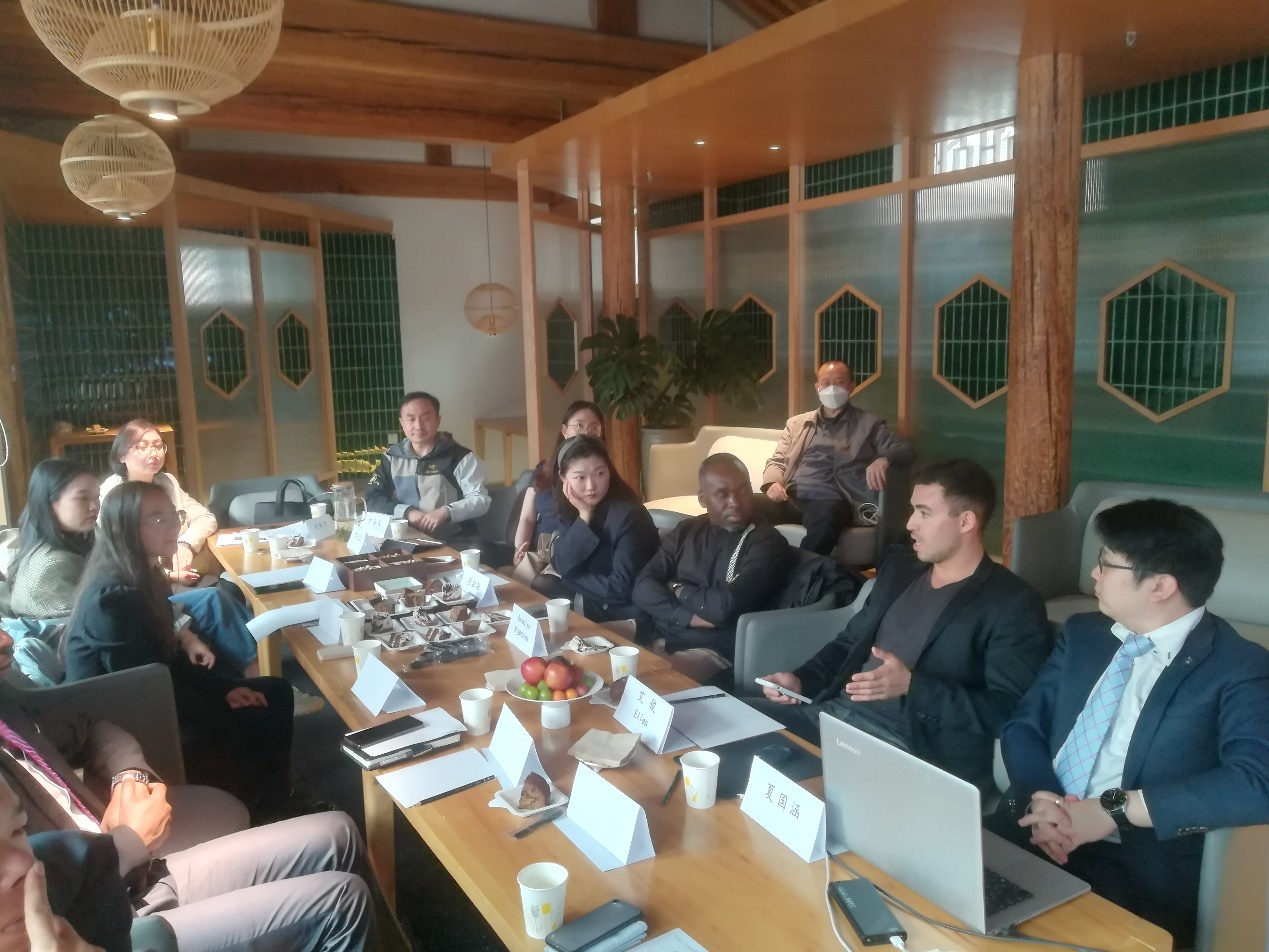
Du Weihua, Associate Professor at Guangdong University of Foreign Studies, commented on the topic "Has German Sinology neglected to conduct a multidimensional study of China? He expressed his views on the topic. According to Professor Du, although Germany is a large European country, German Sinological Studies is currently a very small discipline, i.e. German studies of China are not so much about understanding and knowledge of China as they are about the construction of Germany's own knowledge system and values. In other words, it does not meet China's expectations. The German idealist intellectual elite, from Kant to Hegel to Marx and Max Weber, have only attempted to parochially incorporate discourses on China into their own knowledge systems and consider Chinese society to be a 'mummified society', i.e. static and unprogressive, which clearly does not meet China's expectations. At present, Germany's relations with China may be heading towards a new turning point: while Chancellor Scholz is trying to maintain friendly relations with China, Foreign Minister Berke is full of prejudices against China, in line with the "idealistic paranoia" mentioned earlier, and is more concerned with the implementation of his own ideas or values in foreign affairs. They are more concerned in foreign affairs with the implementation of their own ideas or values. With the ongoing conflict between Russia and Ukraine, Scholz's attitude towards China is slowly converging with Berber's, tending towards a repressive and confrontational attitude, so I am not optimistic about German-Chinese relations in the near future.
Donatien Niyonzima, PhD from the Communication University of China and senior editor at the Foreign Languages Bureau of China, spoke on the topic of "The link between Europe, Africa and China: Youth and Shared Future". He argued that the relationship between Europe, Africa and China has become increasingly important in recent years and that the youth of these regions will play a key role in shaping a "youth community". A "youth community of destiny", in which young people from Europe, Africa and China work together through cooperation, innovation and inclusion to create a fair, prosperous and sustainable world. He went on to explain trade, investment (education, infrastructure, technology), inclusiveness, innovation and environmental protection. According to Tin Chi, the economic and political relations between Europe and Africa date back to colonial times and have become more equitable in recent years. While European countries are still one of the biggest investors in Africa, China has, however, emerged in recent years as another big investor in Africa, covering areas such as energy, mining and infrastructure, which, while effective, has attracted some criticism. It is therefore important that young people in China and Africa work together to promote sustainable and equitable investment.
By sharing a few representative events she experienced while studying and working in France, Zhang Xianchi of the Chinese Painting Institute, a member of the Western Returned Scholars Association, gave a glimpse into the ups and downs of Sino-French relations over the years, and also illustrated a "cognitive divide" and "cognitive delay". The problem of the "cognitive gap" and "cognitive lag", where foreign perceptions of the country can be decades removed from reality. Firstly, in 2004, the 40th anniversary of diplomatic relations between France and China and the "spring of Sino-French relations", but even then there were old French women asking Chinese students questions like "can I get milk bread in China" with concern. This was followed in 2008 by the massive protests in Paris against the Beijing Olympics, which shook the Chinese community in France, and of course many patriotic students organised hedges in support of the Olympics, and after 2010, with the influx of Chinese students into France, the 'perception gap' did improve considerably. Later on, the Chinese Cultural Centre in Paris held cultural and artistic events such as a music festival, a food festival, a music festival and a French Chinese film festival, which greatly contributed to French people's understanding of China, such as the introduction of Beijing Love Story into France in 2014, which was very effective. According to Zhang, artistic exchanges are a very good way to promote humanistic exchanges between China and France, and the foundation of people-to-people relations lies in the relationship between individuals and individuals, then between groups and groups, and finally between countries.
|
Prev:First presentation in the Forum Series "Strategic Repositioning of Europe in The Change of Century"
Next:None! |
Return |
Link :
Copyright : ZONGHENGCE Strategy Insitute(ZHC)
Technical support: Yunding Data